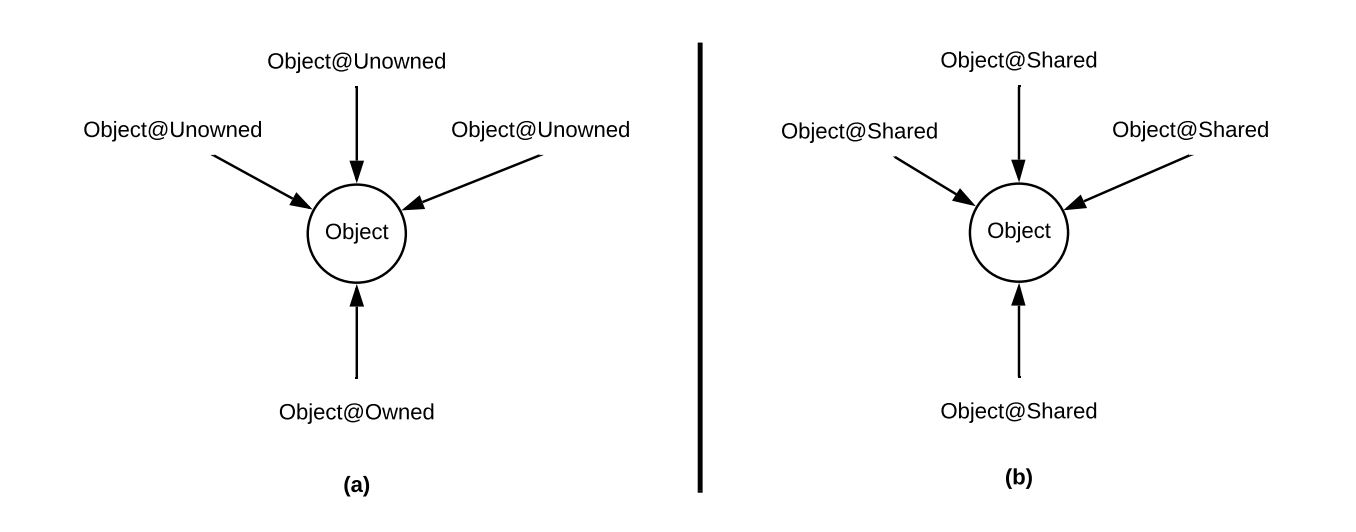Ownership – Introduction¶
Principles of ownership¶
Our new programming language is object-oriented. It includes contracts, which are like classes, and can have fields
and transactions, analogous to Java fields and methods respectively. An Obsidian program must have exactly one main contract.
In addition, of the many variables or fields that reference objects, exactly one of them
can own the object, as seen in diagram (a) below. An object can have any number of Unowned references, and, if the object is not Owned,
it can have any number of Shared references (shown in (b) below). An object with Shared references can also have Unowned references,
but not Owned ones.

In other words, the concept of ownership is having different types of references to an object. There are three different
types of references: Owned, Unowned, and Shared.
Let’s use money as an example. If you have $10, that money belongs to you – you own it. This is the idea of an Owned reference.
You can show this money to anyone else; they can see the money, and talk about it, but they can’t do anything with it –
they can’t spend it or save it because it’s not theirs. This is the idea of an Unowned reference; it’s a reference to an object,
but doesn’t have as much manipulative power over the object because it doesn’t own the object. Now imagine the $10 is in a public pot that anyone can take from.
In this case, everyone shares ownership of the money; i.e., you all have Shared references to it. Shared references
are similar to normal references in other programming languages, and are the default ownership type if no permission is specified.
Note that ownership ONLY applies to objects; primitive types (like ints, strings, booleans, etc.) do NOT have permissions.
Continuing with money, here is an example of a contract (a Wallet) with an object, a Money contract,
that has one Owned reference:
contract Money {
}
main contract Wallet {
Money@Owned m; // @Owned indicates that the reference m owns the object it refers to
transaction spendMoney() {
...
}
}
The figure below shows how Obsidian reference types consist of both a contract and a permission.
Note that with this code alone, m is an Owned reference that doesn’t actually point to any object. If we wanted to create a new object,
we would do it in a similar way to other object-oriented languages: m = new Money(). Now, m is an Owned reference pointing to a
Money object.
The compiler tracks ownership of each variable every time the variable is used. This information is part of the type of the variable. For example, the type of m is Money@Owned. Information about ownership is NOT available at runtime; it is only available during compilation.
- If a reference is the only one that holds ownership, then it is
Owned. - If all references to the object are the same (there is no owner), then each reference is
Shared. - If a reference is NOT the owning one, but there might be another owning reference, then the reference is
Unowned.
